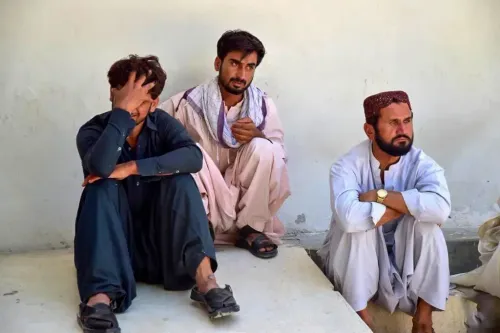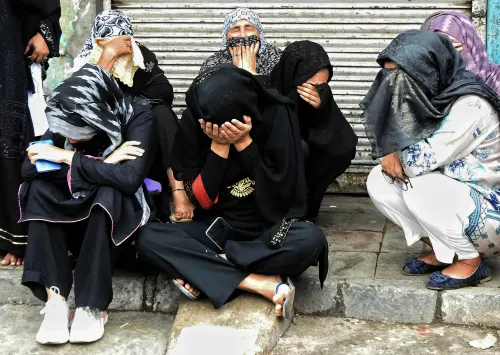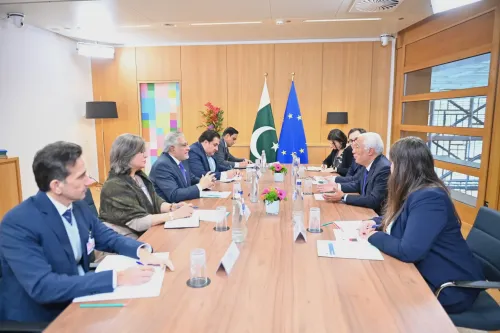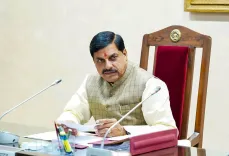Is North Korea Open to Dialogue with the US?

Synopsis
Key Takeaways
- The US has noted North Korea's openness to dialogue.
- Denuclearization discussions remain off the table for now.
- The recovery of US service members' remains is a top priority.
- Engagement through diplomacy is a focus for the US administration.
- Strengthening alliances in the Indo-Pacific is crucial.
Washington, Aug 8 (NationPress) A US diplomat remarked that the United States takes note “with interest” of a recent declaration from Kim Yo-jong, the prominent sister of North Korean leader Kim Jong-un, which seems to indicate Pyongyang's willingness to engage in diplomacy with Washington, while simultaneously dismissing any discussions regarding its denuclearization.
Seth Bailey, the acting deputy assistant secretary in the State Department's Bureau of East Asian and Pacific Affairs, made these comments during a public event, referencing Kim Yo-jong's statement from last week, in her capacity as vice department director of the North's ruling party's Central Committee.
“We have also observed high-level comments from the DPRK leadership, including recent statements from Kim Yo-jong, which we note with interest,” he stated during the event organized by the Defense POW/MIA Accounting Agency (DPAA) for family members of troops missing, primarily from the 1950-53 Korean War. DPRK stands for the North's official name, the Democratic People's Republic of Korea.
“Both President Trump and Republic of Korea President Lee have shown their commitment to diplomacy and engagement with North Korea,” he continued.
Last Tuesday, Kim Yo-jong mentioned that the personal rapport between US President Donald Trump and North Korean leader Kim Jong-un is “not bad” — a rare comment that appears to indicate a level of interest from Pyongyang in engaging with the Trump administration, as reported by Yonhap news agency.
However, she dismissed the likelihood of discussions with Washington concerning its nuclear program, labeling its nuclear armament an “irreversible” stance and urging the US to explore alternative means of communication with the North based on “new thinking.”
At the DPAA event, over 400 family members of the missing troops attended to learn more about the agency's global mission to identify and recover those unaccounted-for.
Bailey emphasized that the repatriation of US service members' remains is not merely a diplomatic priority but a “moral obligation.”
“The United States has made it clear to the North Koreans that we view the recovery of remains of US service members as one of our top priorities and bilateral objectives,” the diplomat stated.
“This is why recovery is prominently featured as a crucial component of President Trump's joint statement with the DPRK during the Singapore summit in June 2018.”
He was referring to the 2018 summit statement, which included Pyongyang's commitment to work towards the “complete denuclearization” of the Korean Peninsula and an agreement by both parties to collaborate in establishing new bilateral relations.
The official confirmed that the Trump administration is still committed to the principles set forth in that statement.
“Since the beginning of President Trump's second term, he has expressed his readiness to engage in negotiations with North Korea to reach these policy objectives,” he said.
“The president has indicated a willingness to engage Chairman Kim Jong-un on several occasions, including during his press conference with Japanese Prime Minister Ishiba back in February, during a White House press conference in June, and in numerous other media appearances when questioned about his relationship with North Korea.”
Commenting on the recent trade agreement with South Korea, Bailey stated that it showcases the shared commitment of both nations to “modernize” and strengthen their alliance.
“As an Indo-Pacific nation, the United States has a lasting interest in addressing the economic and security challenges in this region,” he remarked.
“We are dedicated to enhancing the security of Northeast Asia, employing all means to deter aggression and counter provocations, including the destabilizing actions of North Korea.









